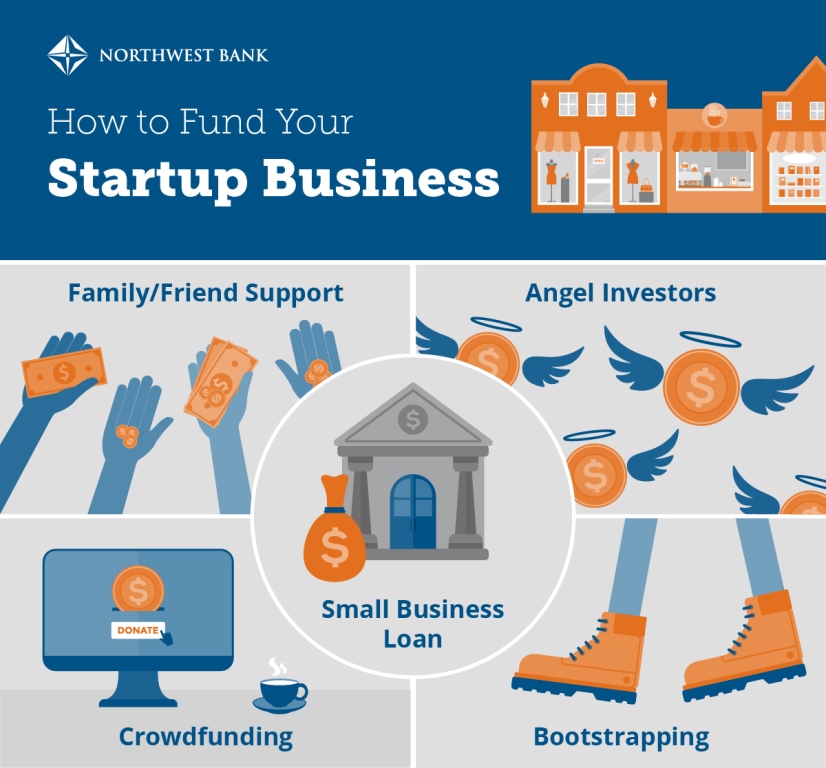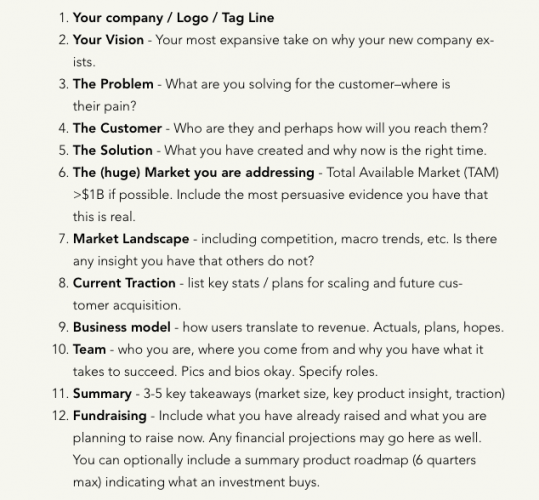
Imagine you're a gardener with a green thumb, nurturing a small plant—your business—hoping it will one day grow into a mighty oak. But like any plant, your business needs nourishment to thrive. In the entrepreneurial world, that nourishment comes in the form of investment. Attracting investors to your small business can be a game-changer, providing the funding for small business growth that you desperately need. So, how do you catch the eye of venture capital firms and angel investors? Let's dive in and find out.
Understanding the Investor Landscape
Before you start your journey to attract investors, it's crucial to understand the types of investors out there. Venture capital firms and angel investors are two of the most common sources of funding for small businesses.
Venture Capital Firms
Venture capital firms are professional investment companies that manage funds on behalf of others. They typically invest in high-growth potential startups in exchange for equity. Venture capital can provide significant funding for small business expansion, but it often comes with strings attached, such as a seat on your board of directors.
Angel Investors
Angel investors, on the other hand, are high net worth individuals who invest their personal funds in startups. They often provide more than just capital; they can offer mentorship, industry connections, and valuable advice. Angel investors are usually more flexible than venture capital firms and may be more willing to take risks on early-stage businesses.
Crafting a Compelling Investor Pitch
Your investor pitch is your first impression, and you know what they say about first impressions. It needs to be compelling, concise, and clear. Think of it as your elevator pitch on steroids. Here’s how to craft a pitch that will make investors sit up and take notice.
Know Your Audience
Understanding your audience is key. Different investors have different priorities and preferences. Some may be more interested in the potential for rapid business growth, while others might focus on the long-term sustainability of your business model. Tailor your pitch to address the specific concerns and interests of the investors you’re targeting.
Tell a Story
Investors are people too, and people love stories. Your pitch should tell a compelling story about your business—where it came from, where it’s going, and why it matters. Use vivid language and engaging anecdotes to bring your story to life. Remember, facts tell, but stories sell.
Highlight Your Unique Selling Proposition
What sets your business apart from the competition? This is your unique selling proposition (USP), and it’s crucial to highlight it in your pitch. Whether it’s a innovative product, a disruptive business model, or a unique market position, make sure investors understand what makes your business special.

Showcase Your Team
Investors don’t just invest in ideas; they invest in people. Showcase your team’s strengths, experience, and passion. Highlight any relevant industry experience, successful past ventures, or unique skills that your team brings to the table. Investors want to know that your business is in capable hands.
Provide Clear Financial Projections
Investors want to see a clear path to profitability. Provide detailed financial projections that show how your business will generate revenue and achieve sustainable growth. Be realistic and conservative in your estimates—investors can spot inflated numbers a mile away.
Building a Strong Business Plan
A strong business plan is the backbone of your investor pitch. It provides a comprehensive overview of your business, including your market analysis, competitive landscape, marketing strategy, and financial projections. Here’s how to build a business plan that will impress investors.
Conduct Thorough Market Research
Understanding your market is crucial. Conduct thorough market research to identify your target audience, market size, and growth potential. Use this information to demonstrate the demand for your product or service and the potential for business growth.
Analyze Your Competition
Knowing your competition is just as important as knowing your market. Analyze your competitors’ strengths and weaknesses, and identify gaps in the market that your business can fill. Show investors how your business stands out from the crowd.
Develop a Solid Marketing Strategy
A solid marketing strategy is essential for attracting and retaining customers. Outline your marketing and sales strategies, including your target audience, marketing channels, and sales projections. Show investors how you plan to reach your customers and drive business growth.
Create Detailed Financial Projections
Financial projections are a critical component of your business plan. Create detailed financial projections that include your revenue streams, expense breakdowns, and profit margins. Use this information to demonstrate your business’s potential for financial success.
Leveraging Networking and Relationships
Networking is a powerful tool for attracting investors to your small business. Building relationships with potential investors can open doors to funding opportunities and provide valuable insights into the investment process. Here’s how to leverage networking and relationships to attract investors.
Attend Industry Events and Conferences
Industry events and conferences are great places to meet potential investors. Attend events that are relevant to your industry, and use them as opportunities to network with investors and other entrepreneurs. Bring your business cards and be prepared to give your elevator pitch.
Join Online Communities and Forums
Online communities and forums are another great way to connect with potential investors. Join groups that are relevant to your industry, and participate in discussions and Q&A sessions. This can help you build relationships with investors and gain valuable insights into the investment process.
Leverage Your Existing Network
Don’t overlook your existing network. Reach out to friends, family, and colleagues who may have connections to potential investors. Ask for introductions and referrals, and use your network to expand your reach.

Build Relationships Over Time
Building relationships with potential investors takes time. Don’t rush the process—focus on building genuine connections and providing value. Share updates on your business progress, and keep investors informed about your achievements and milestones.
Preparing for the Investor Meeting
Once you’ve attracted the interest of potential investors, it’s time to prepare for the investor meeting. This is your chance to make a strong impression and secure the funding you need. Here’s how to prepare for a successful investor meeting.
Practice Your Pitch
Practice makes perfect. Rehearse your pitch until you can deliver it confidently and smoothly. Focus on your key messages, and be prepared to answer questions and address concerns. The more you practice, the more comfortable you’ll feel.
Prepare Supporting Materials
Supporting materials can help reinforce your pitch and provide additional information to investors. Prepare a slide deck, financial projections, market research, and any other relevant documents. Make sure they are well-organized and easy to understand.
Anticipate Questions and Objections
Investors will have questions and objections. Anticipate them in advance, and prepare thoughtful, well-reasoned responses. This will demonstrate your knowledge and preparedness, and help build investor confidence in your business.
Dress for Success
First impressions matter. Dress professionally and appropriately for the meeting. This will help you make a strong impression and demonstrate your commitment to your business.
Post-Meeting Follow-Up
The investor meeting is just the beginning. Effective follow-up is crucial for maintaining investor interest and securing funding. Here’s how to follow up effectively after an investor meeting.
Send a Thank-You Note
A simple thank-you note can go a long way. Send a thank-you email or letter to express your appreciation for the investor’s time and interest. This will help keep the lines of communication open and demonstrate your professionalism.
Provide Updates and Information
Keep investors informed about your business progress and any new developments. Send regular updates and information to keep investors engaged and interested in your business.
Address Any Follow-Up Questions
Investors may have follow-up questions or requests for additional information. Address these promptly and thoroughly. This will demonstrate your responsiveness and commitment to the investment process.
Stay Persistent
Securing investment takes time and persistence. Don’t be discouraged if you don’t hear back right away. Stay persistent, and continue to follow up with investors until you secure the funding you need.
Conclusion
Attracting investors to your small business is a journey, not a destination. It requires a compelling pitch, a strong business plan, effective networking, and persistent follow-up. But with the right approach, you can secure the funding you need to take your business to the next level.
Remember, investors are looking for more than just a good idea—they’re looking for a solid business with a clear path to profitability. By understanding the investor landscape, crafting a compelling pitch, building a strong business plan, leveraging networking and relationships, preparing for the investor meeting, and following up effectively, you can attract the investors you need to achieve business growth and success.
So, are you ready to take your small business to the next level? The journey to attracting investors starts with you. Take the first step today, and watch your business grow into the mighty oak you always knew it could be.
FAQs
What is the difference between venture capital and angel investors? Venture capital firms are professional investment companies that manage funds on behalf of others, while angel investors are high net worth individuals who invest their personal funds in startups.
How important is a business plan in attracting investors? A business plan is crucial as it provides a comprehensive overview of your business, including market analysis, competitive landscape, marketing strategy, and financial projections.
What should be included in an investor pitch? An investor pitch should include a compelling story about your business, your unique selling proposition, a showcase of your team, and clear financial projections.
How can networking help in attracting investors? Networking can open doors to funding opportunities and provide valuable insights into the investment process. It helps build relationships with potential investors and gain their trust.
What should I do after an investor meeting? After an investor meeting, send a thank-you note, provide updates and information, address any follow-up questions, and stay persistent in your follow-up efforts.
Posting Komentar